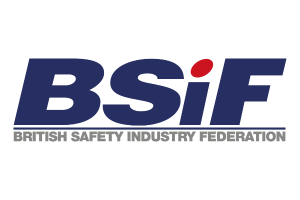Stress is main cause of workplace incidents, research shows
NEW RESEARCH from EcoOnline reveals that 44% of workers have been involved in a workplace incident or know someone who has – and stress is the main cause.

EcoOnline has released its latest research findings: How Safe & Sustainable Is Your Workplace? The study surveyed over 5,700 employees across North America, the UK & Ireland, and the Nordics to understand how safe and sustainable workplaces really are, from the frontline view. The findings from 1,000 UK&I workers expose gaps in chemical safety, digital solutions and lone worker protection – alongside rising stress levels – calling for a renewed focus on the full workplace experience.
How safe are UKI workplaces?
Workers overwhelmingly feel that their workplace is safe (82%), however nearly half (44%) have personally experienced, either themselves or through a relative, a workplace accident or work-related illness. The majority relate to stress, affecting 64% of UK&I workers, higher than the global average (59%) and North America (54%).
Exposing chemical safety gaps
Chemical management is complex and rife with risk. 42% of UK&I workers are exposed to hazardous chemicals and, of that, 37% say their company is not actively working to substitute hazardous chemicals.
Though 83% have received chemical handling training and 75% have access to Safety Data Sheets (SDS), major digital gaps remain. 40% of employees lack access to QR codes for SDS and 36% have not been provided with a digital chemical management system, highlighting a critical chemical safety shortfall.
Rising pressure on lone workers
Over a third (35%) of UK&I workers classify themselves as lone workers. While 68% say their employer takes lone worker safety seriously, only 41% strongly agree – showing a notable confidence drop compared to 53% across the full workforce who strongly agree their workplace is safe.
Top concerns among lone workers are psychosocial: fatigue (48%), stress and mental health (43%), and threats of aggression (42%). Concerns also vary by country –aggression or assault ranks second highest in the UK at 44%, whereas accidents and falls are the second biggest worry in Ireland at 46%.
Digitisation and AI: Trust in a Safer Future?
Two-thirds (67%) of employees say they’d feel safer with more digital health and safety tools, rising to 82% among those aged 18-34. Digital training is already widely used – 86% of those trained used e-learning – but other areas still lag. Nearly half (48%) want digital incident reporting, yet most still rely on manual processes.
While just 20% believe AI will “definitely improve” safety, 65% of workers are open to AI improving workplace safety, increasing to 78% for 18–34-year-olds. Trust will depend on how it’s implemented, and the biggest opportunities lie in showing how AI can support, not replace, human safety processes, with potential use cases such as predictive alerts or virtual assistants.
Safety and sustainability: Two sides of workplace experience
While health and safety is a key part of workplace experience, sustainability matters deeply too. 76% of workers say environmental responsibility is important, and 54% say their employer placed greater focus on sustainability in 2024. However, only 34% say their business uses a recognised Environmental, Social and Governance (ESG) framework and 29% don’t know what ESG is, signalling a disconnect between ambition and understanding.
Speaking on the research, EcoOnline’s CEO, Tom Goodmanson, said, “Today’s workplace experience hinges on the three S’s: Safety, Stress and Sustainability. Supporting employee wellbeing means going beyond compliance – creating environments that are productive, supportive, and safe. With 82% of workers saying they’d consider leaving due to poor conditions, the link between safety, sustainability and job satisfaction is clearer than ever. Embracing technology to tackle psychosocial risks and make tangible sustainability commitments will be essential to keeping people protected and engaged.”
Read the full report for further insights on frontline worker perspectives.
HSM publishes a weekly eNewsletter, delivering a carefully chosen selection of the latest stories straight to your inbox.
Subscribe here





